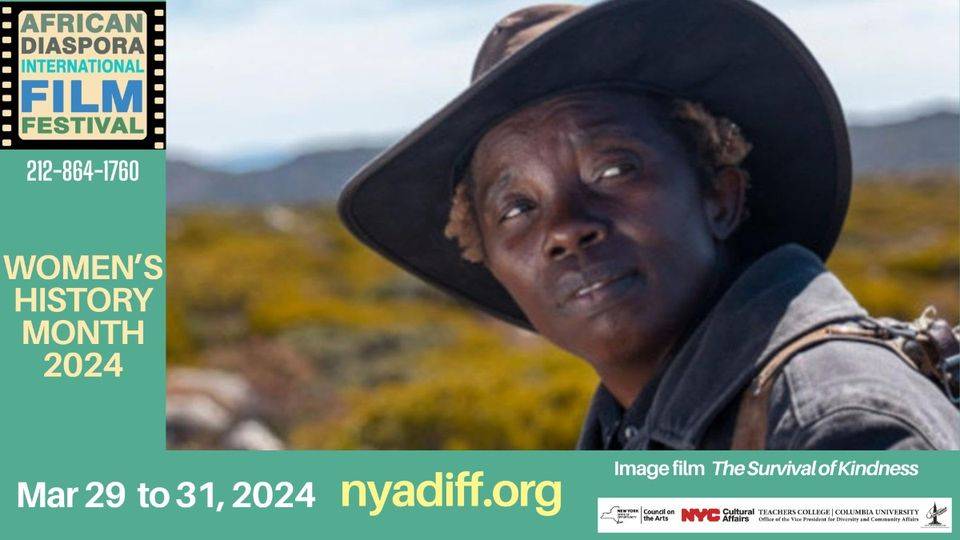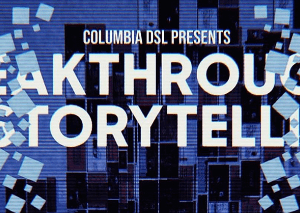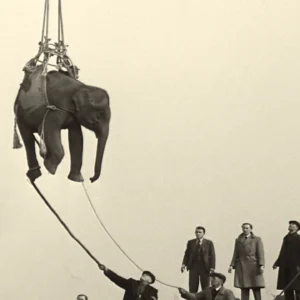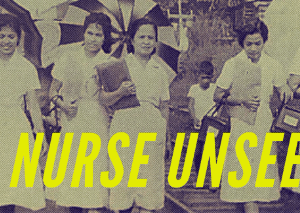
ADIFF Women’s History Month Screenings
Women and Society: Stories of women who challenge the societies they inhabit, unveiling complex social realities through their interactions.
FRIDAY, MARCH 29
6PM Looking for Life by Claudette Coulanges (Hait, Germany)
Chercher la Vie (“Looking tor Life”) introduces the viewer to two women, Anne-Rose and Rosemène, who each have their own particular way of battling through life. The former makes lunches in a factory yard in Port-au-Prince and sells her meals to the factory workers; the latter is employed in the same factory as a production worker making pullovers and T-shirts.
7:30PM Made in Bangladesh by Rubaiyat Hossain (Bangladesh)
Shimu, 23, works in a clothing factory in Dhaka, Bangladesh. Faced with difficult conditions at work, she decides to start a union with her co-workers. Despite threats from the management and disapproval of her husband, Shimu is determined to go on. Together the women must fight and find a way.
SATURDAY, MARCH 30
1PM Zara Yacoub: A Militant Filmmaker – Childhood Destroyed by Zara Yacoub
Eleven year old Mariam works as a domestic to provide for her guardian, her unemployed Uncle Djimet, and his family. Mariam wakes up early each day to go to work while Djimet, his wife Isabelle and their children are still asleep. Mariam works as an all-purpose maid, housekeeper, cook and baby sitter for the Nadji family. With her many tasks, she is constantly under pressure from Nadji and his son Moussa, and must answer to the whims of his wife, and young children. One day, Mariam is arrested for having unwittingly thrown rubbish in a prohibited place. She is detained for five days in prison without her uncle or employer even inquiring of her whereabouts. “Childhood destroyed” denounces the living conditions of young girls in Chad in a delicate yet powerful way.
& Feminine Dilemma by Zara Yacoub (Chad)
Trigger Warning: Contains scenes of excision performed on screen. Viewer discretion is advised.
Images presented in Feminine Dilemma are almost unsustainable to watch. One witnesses the circumcision operation performed on two young girls as women surrounding them in a courtyard clap their hands, dance and sing “you will not cry or we will never forgive you”. Following this harrowing sequence, the film presents a series of interviews with religious leaders, women group representatives, health workers, everyday people and the girls themselves and asks the question: why female circumcision? Should it be performed and how? And what are the consequences?
2:30PM Myopia by Sanaa Akroud (Morocco)
A pregnant woman leaves her village to assist the elder in decoding letters. She inadvertently becomes part of a peaceful revolution.
4:40PM Loimata, The Sweetest Tears by Anna Marbrook (Samoa, New Zealand)
The redemptive tale of waka builder and captain Lilo Ema Siope’s final years, the stunning LOIMATA, The Sweetest Tears is a chronicle of journeys. Confronting intergenerational trauma head on, the Siope family returns to their homeland of Sāmoa. For Ema’s father, this is his first time back to his birthplace since leaving in 1959. The result is a poignant yet tender story of a family’s unconditional love for each other, and a commitment to becoming whole again.
6:30PM Reidit’s Coming Home by Rosalind C Patton (Ethiopia)
A tear-jerking documentary that follows 18-year-old Rediet Adane back to her birth country of Ethiopia for the first time since she was adopted from an orphanage at age 5. Having lost everything, including her birth parents, native language and culture, she now returns to her homeland as a virtual foreigner hoping to reconnect with her past, rediscover her rich heritage, and reunite with her living relatives. This intimately shot video diary centers around the importance of family, community, culture and identity.
8:30PM The Survival of Kindness by Rolf De Heer (Australia)
In a cage on a trailer in the middle of the desert, BlackWoman (Mwajemi Hussein) is abandoned, left to die. But BlackWoman seems not ready. She escapes, journeying through pestilence and persecution, from desert to mountain and finally to city, on a quest for an unknown beginning. But the city is more uncertain even than the desert, and recaptured, BlackWoman must find another escape. Or does she?
SUNDAY, MARCH 31
Raja Amari: A Feminist Filmmaker
12PM She Had a Dream by Raja Amari (Tunisia)
Ghofrane, a determined 25-year-old aspiring politician from Tunisia’s working class, strives to overcome societal challenges to bring change in a polarized society.
2PM Foreign Body by Raja Amari by (Tunisia, France)
After fleeing her radical brother in Tunisia, a young woman seeks refuge in France. There, she navigates challenges, finds hope, and becomes entangled in the complexities of a middle-class household.
4PM All Dirt Roads Taste of Salt by Raven Jackson (USA)
A decades-spanning exploration of a woman’s life in Mississippi and an ode to the generations of people, places, and ineffable moments that shape us.
6PM Africa, USA by Kristin hunt (USA)
Africa, U.S.A. follows Naomi, a young 25-year-old discovering herself, as she explores Igbos Landing, an area where Igbo descendants decided to rebel; Oyotunji Kingdom- a real Yoruba Village in South Carolina; and, Africatown located in Mobile, Alabama which was founded by the last enslaved Africans illegally brought to the United States.
She finds a piece of Africa in the United States and discovers black stories, cultures, and legends rich with empowerment —ultimately finding pieces of herself and her African identity in the United States.
+ How to Sue the Klan by John Beder (USA)
How to Sue the Klan is the story of how Five Black women from Chattanooga used legal ingenuity to take on the Ku Klux Klan in a historic 1982 civil case, fighting to hold them accountable for their crimes and bring justice to their community. Their victory set a legal precedent that continues to inspire the ongoing fight against organized hate.
Screening followed by Q&A



